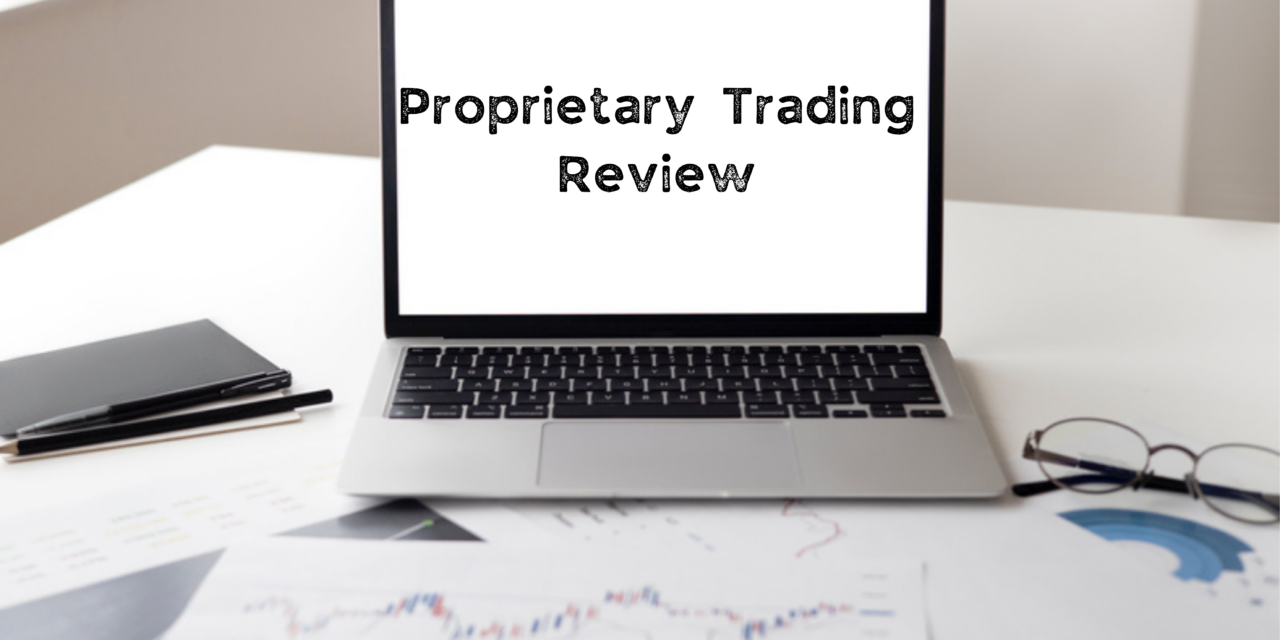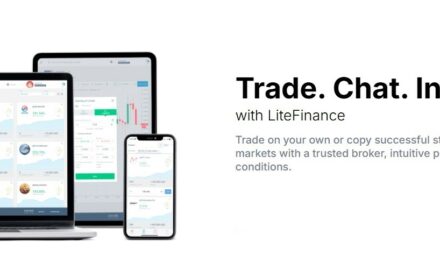Proprietary Trading Review | How it Works?
Proprietary trading, often referred to as “prop trading,” is a form of trading in which traders use funds provided by a third party instead of their own money to take part in the market. These third parties typically hire traders both locally and globally. The company will recruit traders, provide them with the necessary training, assess their abilities, and then facilitate their trades. Afterward, the prop trading firm will get a small portion of any profits made by the traders. We will learn more about the basics of this type of trading in this proprietary trading review.
One of the greatest difficulties that prop trading companies face is losses caused by their traders. To combat this, these firms have implemented regulations to minimize the risk of a large financial hit. Additionally, they make use of technology to keep track of their accounts. To become a prop trader, the steps are straightforward. First, the trader fills out a few documents to register with the company. Second, usually, the trader will speak to the account manager who will provide instructions for the rest of the process.
After completing the third step, they will shift to a demo account for testing. If they pass the test, the company will finance them, and they will begin to trade. The firm allows people from all over the globe to trade with its money. While also enabling them to maximize their returns through the hiring of traders and the setting up of specialized trading floors.
What Are the Best Practices for Proprietary Trading?
- Develop a Trading Plan: A trading plan should include a detailed strategy for entering and exiting trades, as well as risk management guidelines. It should also include a plan for monitoring the markets and adjusting the strategy as needed.
- Use Risk Management Techniques: Risk management techniques such as stop-loss orders and position sizing can help limit losses and protect capital.
- Monitor the Markets: Proprietary traders should monitor the markets closely and be aware of any news or events that could affect their positions.
- Diversify: Diversifying across different asset classes and markets can help reduce risk and increase returns.
- Use Automated Trading Systems: Automated trading systems can help traders execute trades quickly and efficiently.
- Stay Up to Date: Proprietary traders should stay up to date on the latest news and developments in the markets.
- Take Breaks: Taking regular breaks can help traders stay focused and avoid making rash decisions.
Following these best practices can help proprietary traders maximize their returns and minimize their risks. It is important to remember that trading is a high-risk activity and that losses are inevitable. As such, it is important to have a well-thought-out plan and to manage risk appropriately.
How do Proprietary Trading Firms Work?
- These firms are typically composed of traders who specialize in a particular asset class or market. Other financial institutions do not typically affiliate with them and they are not subject to the same regulations.
- Use their own capital to purchase and sell securities, stocks, commodities, derivatives, and other financial instruments. They may also use leverage to increase their potential returns. The goal of these firms is to generate profits from their trading activities.
- Have a team of traders who are responsible for executing trades. Highly experienced and knowledgeable traders typically trade in these markets. They are also responsible for monitoring the markets and making decisions about when to enter and exit trades.
- Ensure safe and responsible trading activities by implementing a risk management system. This system typically includes risk limits, stop-loss orders, and other measures to limit losses.
READ: Prop Trading vs. Broker Trading
How to Choose the Right Proprietary Trading Platform?
Choosing the right proprietary trading platform is an important decision for any trader. With so many options available, it can be difficult to know which platform is best for your trading needs. Here are some tips to help you make the right choice.
First, consider the features and tools offered by the platform. Does it offer the features and tools you need to trade effectively? Does it have the charting capabilities, order types, and other features that you need? Make sure the platform you choose has the features and tools you need to be successful.
Second, consider the fees associated with the platform. Different platforms charge different fees, so make sure you understand the fees associated with the platform you are considering. Some platforms may charge a flat fee, while others may charge a percentage of your profits. Make sure you understand the fees before you commit to a platform.
Third, consider the customer service offered by the platform. Does the platform offer customer service that is available when you need it? Is the customer service knowledgeable and helpful? Make sure the customer service offered by the platform is up to your standards.
Finally, consider the security of the platform. Does the platform use the latest security measures to protect your data and funds? Make sure the platform you choose is secure and reliable.
By considering these factors, you can make an informed decision about which proprietary trading platform is right for you. With the right platform, you can be sure that you are trading with the best tools and features available.
What Are the Different Types of Proprietary Trading Instruments?
The most common proprietary trading instruments are stocks, options, futures, and foreign exchange (forex).
- Stocks are shares of ownership in a company. The stock market buys and sells them, and their performance determines their value.
- Options are contracts that give the holder the right, but not the obligation, to buy or sell a security at a predetermined price.
- Futures are contracts that obligate the buyer to purchase a security at a predetermined price at a future date. They are used to speculate on the direction of the markets or to hedge against risk.
- Foreign exchange (forex) is the buying and selling of currencies. It is the largest and most liquid financial market in the world. It is used to speculate on the direction of currency pairs.
Proprietary Trading Review | Trading Strategies
- Momentum Trading: Momentum trading is a strategy that involves buying and selling securities based on their recent price movements. This strategy is based on the idea that stocks that have recently risen in price will continue to do so, and stocks that have recently fallen in price will continue to do so. Momentum traders look for stocks that have recently experienced a large price move and then attempt to capitalize on the trend.
- Arbitrage Trading: Arbitrage trading is a strategy that involves taking advantage of price discrepancies between different markets. This strategy involves buying a security in one market and then simultaneously selling it in another market at a higher price. The difference in price is the profit that the trader makes.
- Trend Following: In trend following, traders purchase and sell securities based on their long-term price movements. This trading strategy is based on the belief that stocks that have been increasing in value will continue to do so, and stocks that have been decreasing in price will continue to do so. Trend followers attempt to exploit these trends by looking for stocks that have been in an uptrend or downtrend for an extended period of time.
- Mean Reversion: Mean reversion is a strategy that involves buying and selling securities based on their short-term price movements. This strategy is based on the idea that stocks that have recently risen in price will eventually fall back to their average price, and stocks that have recently fallen in price will eventually rise back to their average price. Mean reversion traders look for stocks that have recently experienced a large price move and then attempt to capitalize on the reversal.
Advantages
- For those without any prior experience in the industry, the company providing the service will first offer adequate training in trading.
- A key benefit of prop trading is the ability to access funds from the company to trade. This eliminates the major challenge of needing to come up with the money for trading. It only requires a small refundable amount for any trading hardware.
- Prop trading unlike retail trading has easy-to-follow trading methodologies that can help prevent mistakes from occurring.
- You will always have access to experienced traders to guide you through the process when you choose a prop trading firm. As it is beneficial for the firm to ensure that its traders are successful.
- For retail traders, starting a trading floor is a difficult task; however, with prop trading, it is comparatively straightforward.
Disadvantages of Proprietary Trading
- Your account may be suspended without warning if you violate any rules.
- Prop trading can be an intense working atmosphere due to the demands of having to meet certain daily trading quotas.
- Some prop trading firms implement trading limits as part of their risk management strategy, which can affect your trades.
- As a prop trader, you will be paid based on your profitability. This means that if you are not successful, you may go several months without any income.
Different Types of Proprietary Trading Firms
- Prop Trading Shops – These firms require traders to have a substantial amount of capital, which they will then supplement with additional funds.
- Traditional Prop Trading Firms – These companies, which have a close resemblance to hedge funds, are some of the oldest and in some cases, the biggest proprietary trading companies in the industry. They hire their own traders who are then given funds to trade with. Most of these companies have unique trading methods that give them an advantage in the market. Some employ arbitrage strategies and others specialize in algorithmic trading. Getting accepted into a prop trading company is a difficult undertaking. The recruitment process is often lengthy and only a few applicants are successful.
- Remote Prop Trading Firms – These prop trading firms have achieved immense popularity due to their online presence. They offer a website that allows users to register and take tests. In most cases, the trader must make an initial deposit based on the amount they wish to trade. For instance, a deposit of $200 can allow access to an account with a value of $10,000. Starting up with these companies is not difficult. All you need to do is sign up, put money in your account, pass a test, and begin trading.
Risk Management in Proprietary Trading
Without effective risk management, prop trading firms are likely to suffer a swift demise. Simultaneously, these firms must also allocate more funds to identify and capitalize on the most profitable trading opportunities. Guarantee that only qualified traders are employed to begin managing risk. They must always evaluate them over a specific timeframe.
Additionally, these companies ensure that new traders can only open positions with smaller amounts of money. Other risk management strategies include making sure that traders close out all of their positions prior to the end of the trading day. Higher-performing traders receive more money from most companies while limiting the leverage used in the market.
Proprietary Trading Review | Psychological Factors
Stress Management
As a retail trader, you are in charge of setting your own guidelines. You can choose to not trade for as many days as you want. On the other hand, when it comes to prop trading since you are not trading with your own money, the situation is different. In a high-pressure trading environment, especially during times of market turbulence, it is essential for traders to develop strategies to manage stress. This will help them remain focused, deal with stress, and make sound decisions even when under pressure.
Managing Emotions
Learning to manage emotions is essential for successful trading. Emotional decision-making can cause traders to act impulsively, which can be damaging to their trading strategies. An especially dangerous example of this is revenge trading, where a trader makes a hasty trade in an attempt to recoup their losses, but usually just ends up losing even more money and becoming increasingly distressed. Some strategies for managing these issues include taking a break, setting a stop-loss, and finding a mentor.
Having Discipline
It is important to remember to practice and maintain a high level of discipline when trading. We advise that you stay disciplined with your trading plan. Always keep time, stick to your strategy, resist FOMO, and set a stop-loss and take-profit. When trading, you must be aware of the many cognitive biases that can have a negative impact on your results. These include overconfidence, confirmation bias, and gambler’s fallacy.
Why Firms Choose Proprietary Trading?
Many people wonder why companies opt for prop trading as an approach. Questioning why the firms don’t use the funds and operate as hedge funds instead. Despite this, there are a few advantages to the prop trading strategy that should be noted. Companies maximize their returns by utilizing the prop trading strategy to acquire a large pool of trading talent.
Afterward, when accomplished thoughtfully, proprietary trading can become a lucrative business model for a corporation. Finally, these organizations acquire traders from various places. Generally speaking, it is nearly impossible for trading businesses to generate revenue through a distinct approach.
Proprietary Trading Review | Conclusion
We, therefore, conclude in this proprietary trading review that Proprietary trading is an excellent starting career for anyone interested in finance or in the financial market. It is important to understand the basics of proprietary trading before attempting to engage in it. This includes understanding the different types of strategies, the risks associated with each, and the basics of how it works. With the right knowledge and experience, proprietary trading can be a lucrative and rewarding endeavor.














